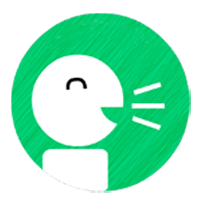PURPOSE - DRIVEN LANGUAGE LAB
PURPOSE - DRIVEN LANGUAGE LAB
The right process of acquiring proficiency in a language is the way we learn our mother tongue. This occurs through the four fundamental steps of Listening, Speaking, Reading and then finally, Writing or the LSRW language learning technique.

This most important first-step to acquire proficiency in a foreign language is continuously possible through a language lab where we are listening to native speaker(s), unlike in a typical classroom setting where the listening process is minimal and the teacher is a non-native speaker of the language.

In the same manner, after repeatedly listening to native sounds and intonations over the headphones with microphones in a language lab setting, the students start to mimic them and they can compare themselves to the native speaker in absolute privacy, without fearing ridicule or comments from peers or teachers. When doing it so, they gain confidence to converse in that language quickly.

Unlike in a classroom, the language lab facilitates role play and reading exercises with dictionaries and phonetic help for the student. This helps the students a great deal when they compare themselves to native speakers in reading effortlessly with zero non-native speaker influence.

When using the modern language lab to attain proficiency in a foreign language, the process of learning is in the proven LSRW methodology. This gives students an added edge in improving their writing skills phenomenally, especially when guided by a mentor who is assigning appropriate levels of learning material as they progress through their lessons.
In a typical classroom of say, 40 students, the comprehension levels of students vary drastically, especially in language classes, depending on the students' social background and upbringing. For instance, a student who has done his/her early schooling overseas where English was the native language may not require as much help as a student who learned the language in a rural primary school setting but is in the same high school classroom.

Students are often shy and inhibited in a typical classroom setting and hesitate to ask for clarifications from the teacher or even express himself/herself accurately. The language lab opens up a whole new world for the student where the sessions are interestingly absorbing while permitting them to learn at their own rate.

Presumably, institutional managements are always working towards bettering the capabilities of their wards. Very often, managements seem to have spent substantially on expensive hardware without the appropriate software to make them effective tools for learning. Almost all institutions have an audio-video lab and some also have the so-called Smart Class. But in reality, how effective are they in helping your students pass out not only as better human beings but also as pillars of our communities and the society?
